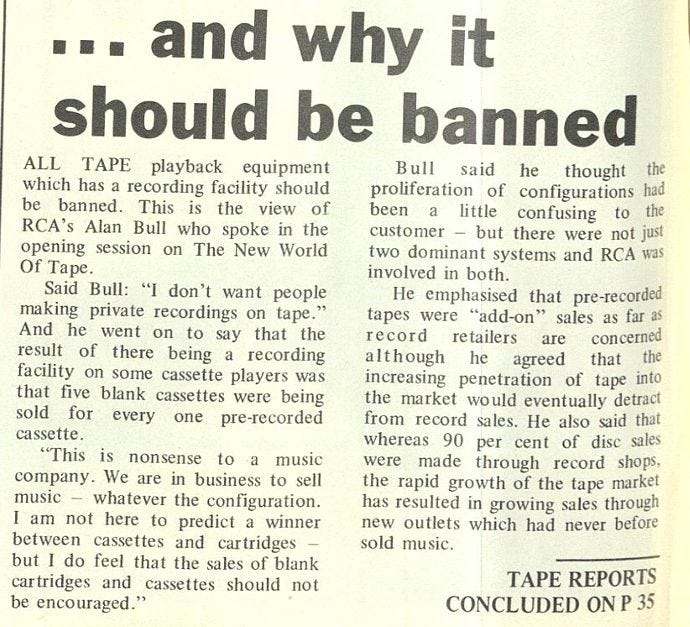What If Taping Had Been Banned?
The image below is part of an article published by a trade paper for the music industry in November 1970.
For anyone under the age of about thirty, the idea that taping music as in this case or video should be banned or could be banned must sound bizarre. For older people though, especially those of us old enough to remember a world where there was no social media, no YouTube, no public Internet, it is not so.
Staying with music, the first cassette tapes were introduced in 1963. Before that, taping music in the home was as good as impossible. Tape recorders had been around for decades, but using them to tape music either off a record or the radio was at best impractical, at worst, hard on the ear.
With a cassette or better still a cassette radio, one with a double deck, it was easy to tape music off the radio or to copy a tape while playing. The peak of cassettes was the 1980s to the early 1990s when CDs came into their own. They first became available commercially in 1982 and were incredibly expensive by today’s standards; about the only thing that reduces in price is technology.
It was now possible to combine the radio with cassettes and CDs, so one could tape from any of them, then came rewritable CDs. Who could ask for more?
More to the point, who asked for less? At times there were campaigns against “pirated” records, especially LPs. The public was warned this would lead to the demise of the music industry – as if. When Joe Public began buying computers as well, we were warned that pirated software was being used to fund organised crime or even terrorism. Thankfully, all that scaremongering by vested interests led nowhere.
Nowadays, few people own cassettes, although they are still around, but imagine if the dinosaurs of the record business had got their way, where would music be now? Heck, they’d probably have banned the Internet to protect public libraries.

